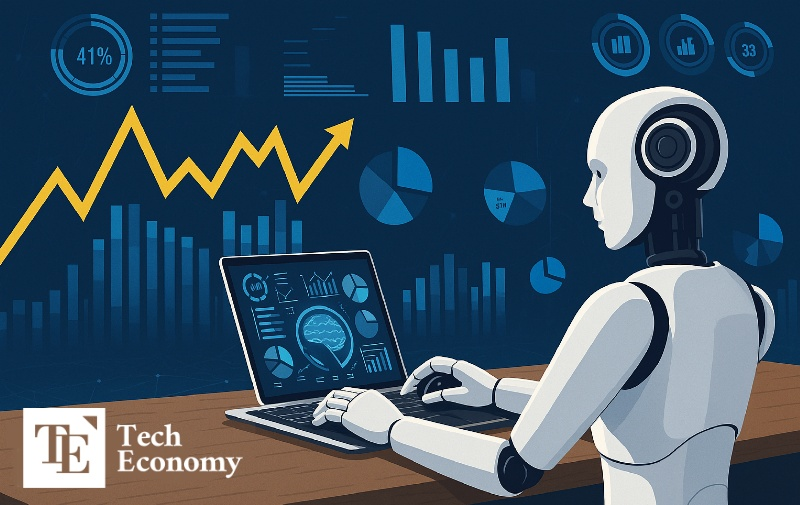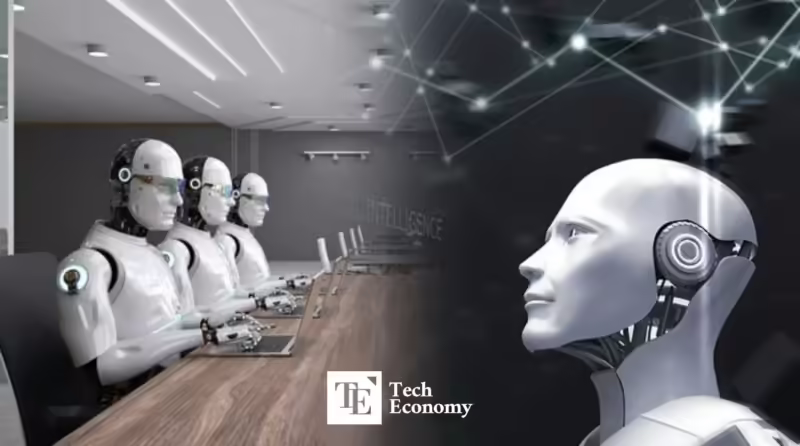“Layoffs Become Routine, Hiring Disappears: AI Is Reshaping Organizations”
Input
Changed
Massive Restructuring by Microsoft, Meta, and Others Rapid Shift Toward Practical AI Agents Replacing Human Roles “No More Entry-Level” as Inverted Pyramid Organizations Rise

Major tech companies like Microsoft and Meta have initiated large-scale layoffs, with Microsoft cutting approximately 6,000 employees—about 3% of its workforce—and Meta reducing its staff by 5%, including significant cuts in its virtual reality division. These actions reflect a broader trend of restructuring within the industry.
The ‘Foreseen Shock’ Becomes Reality
According to a report released on the 28th (local time) by U.S. venture capital firm SignalFire, the number of university graduates hired by 15 major U.S. big tech companies fell by around 25% year-over-year in 2023. During the same period, entry-level hiring at startups also declined by approximately 11%. In contrast, demand for mid-level professionals with 2 to 5 years of experience increased by 27% at big tech firms and 14% at startups.
SignalFire attributes this structural shift in hiring to the advancement of AI technologies, citing the example of Anthropic, widely seen as a rival to OpenAI. At its developer event, Code with Claude in San Francisco on the 22nd, Anthropic unveiled its new model, Opus 4, which can perform complex tasks such as coding, planning, and data analysis for up to seven hours without user input. CEO Dario Amodei declared, “Within six months, AI will be writing 90% of all code.”
Hard data are increasingly confirming these forecasts. According to the U.S. Bureau of Labor Statistics (BLS), employment for computer programmers has fallen by 27.5% over the past two years, while job postings for related roles have declined by 35%. The World Economic Forum (WEF), in its Future of Jobs 2025 report released last month, stated that 40% of employers are planning to reduce headcount in roles that AI can automate. SignalFire’s HR partner Heather Doshay noted, “AI won’t take your job directly—but someone who knows how to use AI better than you will.”
This trend is already evident in South Korea, where many startups and mid-sized IT firms are downsizing their development departments or outsourcing those functions to external platforms. This indicates a deeper shift in corporate mindset—AI is being recognized not just as a tool, but as a primary force of production. As a result, the once-popular advice that “learning to code guarantees employment” is rapidly losing its validity in the job market.
Proficiency in AI Becomes the New Hiring Standard
These changes are fundamentally altering how organizations approach talent development. In particular, entry-level roles in software development are no longer a default entry point. Companies increasingly prefer skilled professionals who are adept with AI tools or cross-functional team players, rather than junior developers with little experience. Most job openings are now geared toward experienced candidates, and only those with fully internalized, specialized tech stacks are considered viable. The idea that one can grow into a role through on-the-job training is quickly becoming outdated.
Even leading big tech firms that are driving AI innovation are now trimming their workforce, accelerating human replacement. On May 13, Microsoft announced layoffs affecting about 6,000 employees—roughly 3% of its global workforce—including subsidiaries and international branches. This marks the largest wave of layoffs since it cut about 10,000 employees in 2023. Microsoft described the cuts as a company-wide reorganization across all levels, departments, and regions, aimed at adapting to market shifts.
Meta, which has expanded aggressively into the AI space, has also pursued staff reductions. After laying off 5% of its workforce (about 3,600 people) in February, the company cut several hundred more in its virtual reality division in April. Earlier this year, CEO Mark Zuckerberg stated that Meta would raise performance standards and “let go of underperformers more quickly.” These moves underscore a critical reality: even existing jobs are no longer secure, as organizational structures evolve under the pressure of AI and automation.

The Disbanding of In-House Development Teams Has Already Begun
In the IT industry, what was once a theoretical concern—that AI would reduce jobs—has now evolved into a more profound reality. Observers note that the conversation has moved beyond mere headcount reductions and is now centered on the complete redesign of hiring and organizational structures. Increasingly, companies are shifting from scaling down recruitment to overhauling the entire talent system itself. In this new landscape, OpenAI’s Codex handles development, Google’s AlphaEvolve manages testing, Microsoft’s Discovery leads research, and outsourcing fills the remaining functions. The result is a growing transition toward organizational models that no longer require people in traditional roles.
This transformation is bringing fundamental change to the job market. Historically, employment demand within companies has fluctuated in tandem with economic cycles. Today, however, we are witnessing the outright disappearance of certain roles. For example, junior planners without hands-on experience, data entry workers, and basic QA testers are rapidly vanishing from hiring pipelines due to the rise of AI and automation tools. Companies are no longer seeking candidates for these positions, and the corresponding talent pools are becoming less relevant.
The deeper concern is that the collapse of the entry-level job market could have long-term consequences for workforce planning across society. Even if AI can handle tasks today, there is no clear strategy for developing experienced talent five to ten years down the line. Without a pipeline of junior employees gaining experience now, future organizations may face severe skill shortages. One IT industry insider warned, “Most companies today are focused solely on short-term efficiency and cost reduction,” adding, “This strategy will inevitably lead to talent gaps in the not-so-distant future.”





















